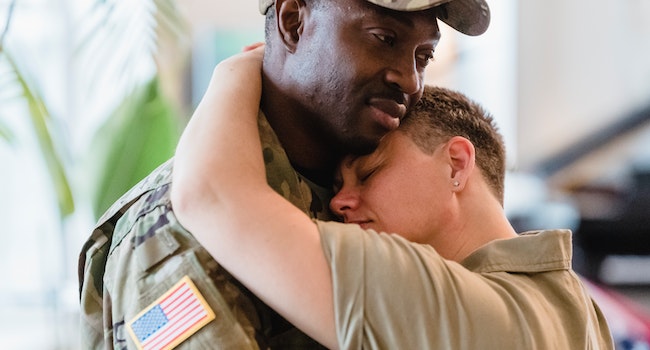The Unique Challenges of Military Divorce: An Overview for Service Members and Spouses

Divorce is often a difficult and stressful process for anyone, but it can be even more complicated when one or both spouses are in the military. Military divorces are unique situations that require careful consideration and planning.
Let’s explore the military divorce challenges that service members and their spouses face during a divorce as well as some tips for navigating this complex process.
If you’re concerned about navigating the military divorce process, an Anderson divorce lawyer from Steele Family Law in South Carolina can help walk you through the process and ensure the best possible outcome for your case.
What Makes Military Divorce Different?
Military divorce legally ends a marriage where one or both spouses are in the military. The process is similar to a civilian divorce, but some unique differences must be considered. Military divorce is governed by state and federal laws, including the Servicemembers Civil Relief Act (SCRA).
There are several reasons why military divorce is different from civilian divorce. One of the main differences is that military divorce involves complex legal and logistical issues related to military service. These issues include deployment, jurisdiction, child custody and support, pension division, and healthcare benefits.
Challenges of Military Divorce
- Deployment — One of the biggest challenges of military divorce is deployment. Service members may be deployed overseas or to a different state, making attending court hearings or meeting with their attorneys difficult. In some cases, deployment may also impact child custody arrangements.
- Jurisdiction — In a civilian divorce, the divorce proceedings typically occur in the state where the couple resides. However, in a military divorce, jurisdiction can be more complicated. Depending on the circumstances, the divorce proceedings may take place in the state where the service member is stationed, where the couple was married, or where the spouse resides.
- Child custody and support — If a service member is deployed overseas, arranging for visitation or shared custody of the children can be difficult. Additionally, the service member’s income can complicate child support calculations, including allowances and bonuses.
- Pension division — Pension division is often straightforward in a civilian divorce, but it can be much more complicated in a military divorce. The Uniformed Services Former Spouses’ Protection Act (USFSPA) governs the division of military pensions in divorce cases.
- Healthcare benefits — Service members and their families are typically covered by TRICARE, which is the military healthcare system. After a divorce, the non-service member spouse may lose access to TRICARE unless they meet certain eligibility requirements.
Tips for Navigating Military Divorce
Military divorce can be a complicated and overwhelming process.
However, there are several things service members and their spouses can do to help navigate the process:
- Hire an attorney with experience in military divorce. One of the most important things service members and their spouses can do is hire an attorney with experience in military divorce. Military divorce involves unique legal and logistical challenges that require specialized knowledge and experience.
- Gather important documents. It is also important to gather all important documents related to the divorce, including military records, financial records, and any relevant court orders or agreements. Having these documents organized and readily available can help streamline the divorce process.
- Stay in communication with your spouse. Despite the challenges of divorce, service members and their spouses need to maintain open communication throughout the process. This can help avoid misunderstandings and reduce the likelihood of disputes.
- Be prepared for delays. Military divorce can be a lengthy process, and delays are common. Being patient and prepared for unexpected delays in court hearings or other aspects of the divorce process is important.
- Consider mediation or collaborative divorce. Finally, service members and their spouses may want to consider mediation or collaborative divorce as an alternative to traditional litigation. These approaches can be more flexible and less adversarial and may be better suited to the unique challenges of military divorce.
Reach Out to an Anderson Divorce Lawyer with Experience in Military Divorce Challenges
Divorce is almost always difficult. In a military divorce, some added challenges and complexity could make this trying time even more stressful. The good news is that you don’t have to face this road alone. It is possible to navigate these challenges successfully with the right support and guidance.
At Steele Family Law in Anderson, SC, we’ll guide you through the legal process of military divorce, ensuring the best possible outcome for your case. Contact us today to schedule your consultation.
FAQ: Military Divorce
Can a service member be forced to attend court hearings during deployment?
It depends on the circumstances. In some cases, a service member may be able to request a delay or exemption from attending court hearings during deployment.
How is child custody determined in a military divorce?
Child custody is determined using the same standards as a civilian divorce. However, deployment and other military-related factors can make custody arrangements more complicated.
How long does a military divorce typically take?
Military divorce can take several months to several years, depending on the complexity of the case and any unexpected delays in the legal process.

